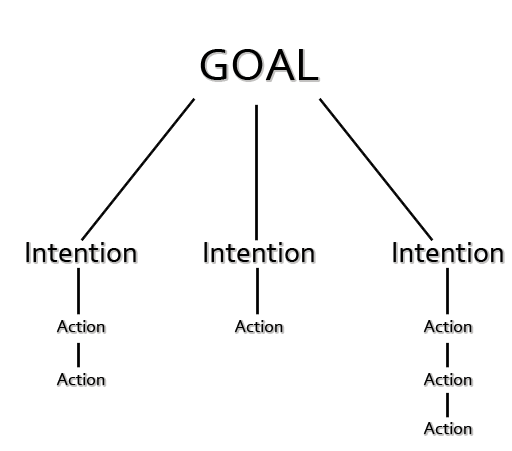# Goals
There is almost no occasion where you would not benefit from considering the goals of what you are doing; both from an internal, project development mindset, and from and external gameplay / game design mindset.
Goal: Goals are simple, clear declarations of what you hope to accomplish. It lacks the specifics of how.

When it comes to semantic-based design, understanding the goals of the player is the cornerstone of the entire approach. You will constantly be asking yourself, "what is the player's goal?"
This sounds a little Herculean, but it is honestly quite simple for most games. In God of War, for example, the goal was almost always some form of, "Kill ______".
Or more generally, I would often repeat the mantra, "the player's goal is to accomplish great things." Which is a very greek mythology mindset.
Ultimately the great benefit of goal-based design is also it's greatest flaw. It tends to be a little optimistic and hopeful about the end product. We all HOPE that the player's goals align with what we set out to achieve... buuuut... that can often fly in the face of what the players are actually enjoying about our game. Strict adherence to stated goals can lead you to ignoring reality.
# When to use
- You want to orient your designs.
- You want to focus on what matters for your project.
# When not to use
- You are trying to really understand what the player is thinking (try scenario based design).
- You want to ignore what people are actually enjoying about your game.